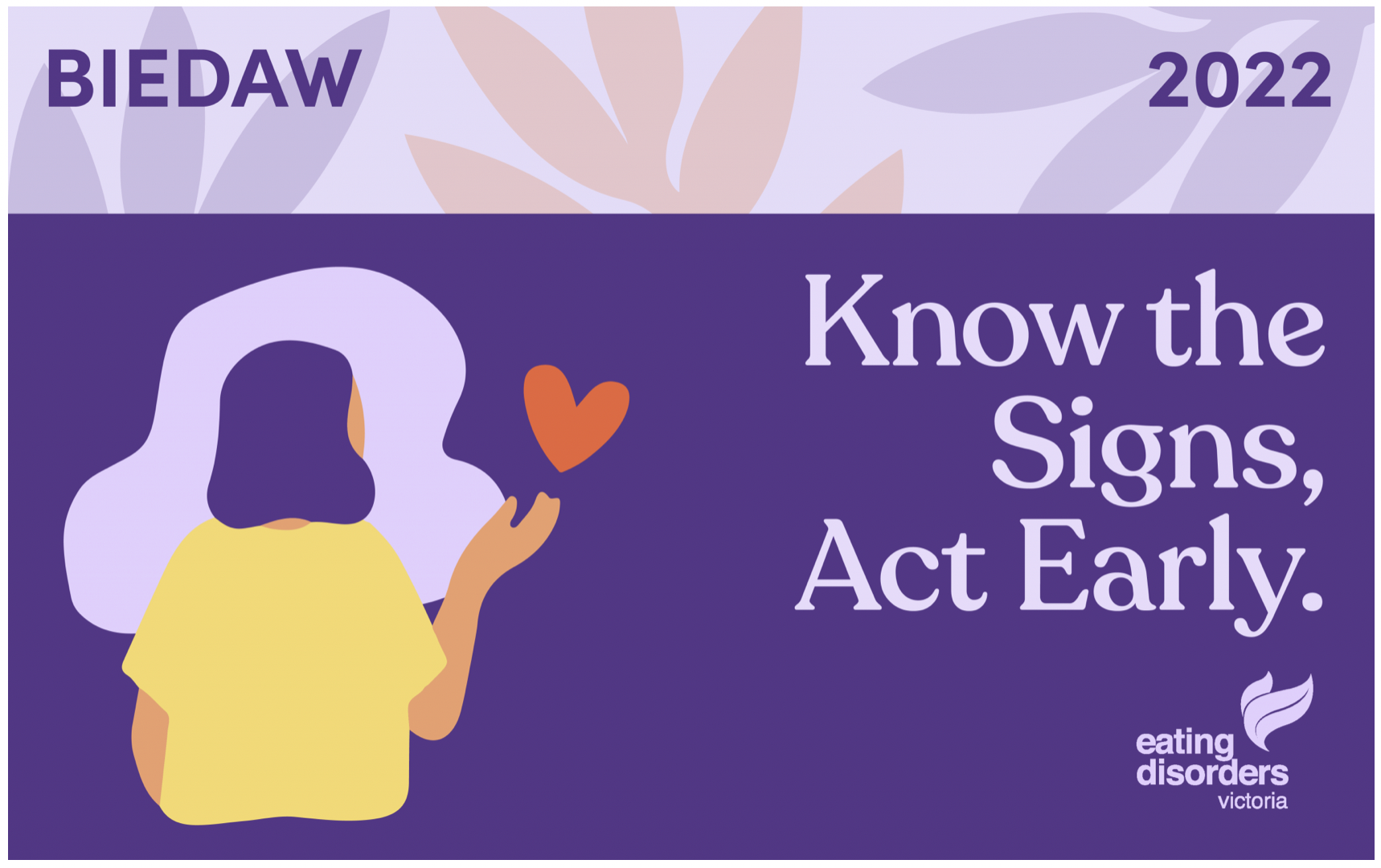September 5-11 2022 is Body Image and Eating Disorders Awareness Week.
The focus of this years Body Image and Eating Disorders Awareness Week (BIEDAW) is knowing the signs of an eating disorder and acting early to intervene. Early diagnosis and treatment for an eating disorder leads to better outcomes for individuals and their families and communities. To help you recognise the signs of an eating disorder in yourself or someone you care about, we’d like to address some of the most common myths.
Myth #1: You can easily tell if someone has an eating disorder
Eating disorders are not always obvious or apparent, and often involve a lot of hidden behaviours, secrecy and shame. People effected by an eating disorder might go to great lengths to hide their behaviours and may not feel comfortable sharing their concerns. Eating disorders do not always involve significant weight changes or ‘looking sick’. While they can result in acute changes they can also sometimes progress gradually, making it more difficult to notice a change in a persons behaviours or mood.
Myth #2: Eating disorders don’t need to be treated seriously, they’re a choice and will naturally pass
There is a pervasive myth that eating disorders are a lifestyle choice and that people effected would be able to stop if they tried. Eating disorders are in fact complex and multifaceted mental illnesses, with the highest mortality rate of any mental health condition. This not only impacts an individual’s behaviour, but also their thoughts and feelings, which can become highly distressing and all-encompassing. As well as severely impacting mental health, eating disorders are also associated with serious physical health risks.
Myth #3: Food and body image concerns are normal and harmless
Although food and body image concerns are very common, this does not mean they’re harmless. In our culture, disordered eating behaviours have been normalised and even sometimes encouraged, which can make it challenging to recognise them as a problem. Weight loss dieting is a risk factor for the development of an eating disorder, and can also contribute to other mental and physical health conditions.
Myth #4: Eating disorders only effect young, thin, white females
Eating disorders can affect anyone regardless of age, gender, race or body size. Approximately 9% of the Australian population will be effected by an eating disorder within their lifetime. Australia’s First Nations people experience eating disorders at similar rates as other members of the population. Although commonly associated with women, across the spectrum of different eating disorder presentations men make up 20-67% of those effected. Furthermore, people in minority sexuality and gender groups are more likely to experience an eating disorder, and are also less likely to seek treatment.
Eating disorders can affect anyone, and they are not always obvious. If you suspect you or someone you know may be experiencing an eating disorder, take action as soon as possible. You can find more information about BIEDAW 2022 on the Eating Disorders Victoria (EDV) website (click the image below), or by contacting The Hub at EDV.

Tagged: Body Image, Eating Disorder